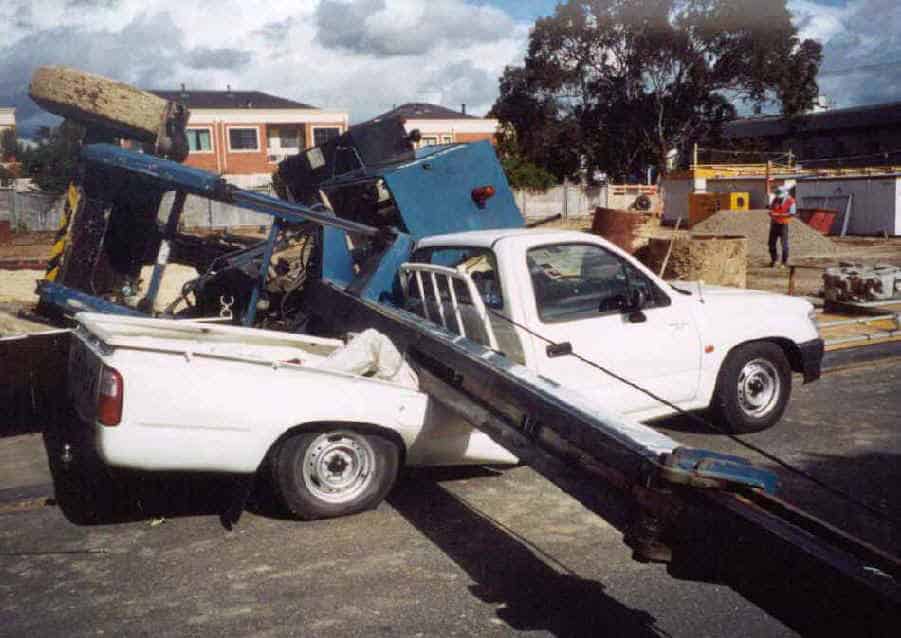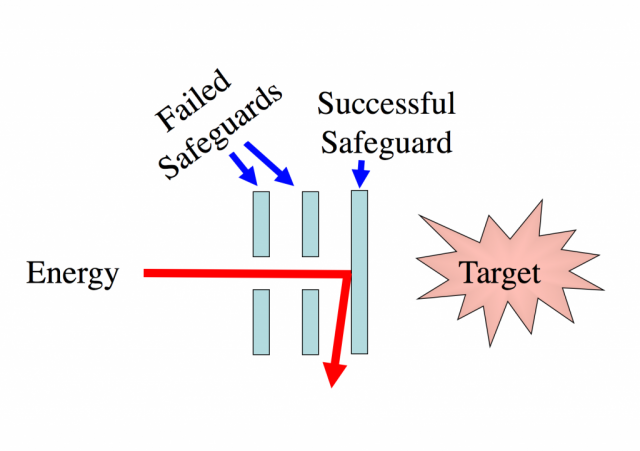Stop Using the Term “Near-Miss” … It’s a Precursor!

Near-Miss or Precursor?
Is it a Near-Miss or a Precursor? We defined the term “near-miss” in a previous article. See:
Near-Miss: How “Near” Does it Need to Be?
Here are several “near-miss” examples:
The previous examples are rather obvious. But you might have examples at your facility that are harder to “see.” Examples where a single Safeguard prevented a major accident. Examples that were precursors to a major accident.
Precursors Get Management’s Attention
Three years ago, I had an epiphany, and I thought it was worth repeating today … You should NOT use the term “Near-Miss.”
Why? Read on and see.
Have you ever presented a near-miss to management, and they didn’t seem too concerned? They didn’t want to commit resources to fix the problem?
Maybe part of your problem is the terminology that you were using. You called it a near-miss.
What should have you called it? A precursor. A precursor to:
- a fatality
- a major injury
- an environmental disaster
- the loss of a major customer (quality issue near-miss)
- a major financial loss
Do those precursors sound more serious? Would that terminology(for example, a fatality precursor) get management’s attention?
A “precursor” implies that something WILL happen in the future if we don’t do something.
So, if you are still using the term “near-miss” (or even close-call or good catch), perhaps you should be calling these incidents:
- a precursor to a fatality
- a precursor to a major injury
- a precursor to an environmental disaster
- a precursor to the loss of a major customer
- a precursor to a major financial loss
Then you can get management’s attention and get resources to prevent the accident that is coming. An accident that the precursor has warned you about. A precursor that will happen unless you do something different – for example, apply effective corrective actions.
One more thing. Precursors are not just paper cuts. Precursors have to actually be able to cause a serious accident if one more Safeguard would have failed.

Investigating Precusor Incidents
One more tip. How much effort should you expend investigating a precursor incident?
That’s a great question.
Ask yourself this …
“How much is it worth to prevent a major accident?”

Learn to Prevent Major Accidents
If you would like to learn to flexibly use advanced root cause analysis to investigate low-to-medium risk incidents and prevent major accidents, attend one of our TapRooT® Root Cause Analysis Courses.
If you would like to learn to flexibly use advanced root cause analysis to investigate low-to-medium risk incidents AND major accidents, you should attend the 5-Day TapRooT® Advanced Root Cause Analysis Team Leader Course. To see our upcoming public 5-Day TapRooT® Courses, CLICK HERE.




